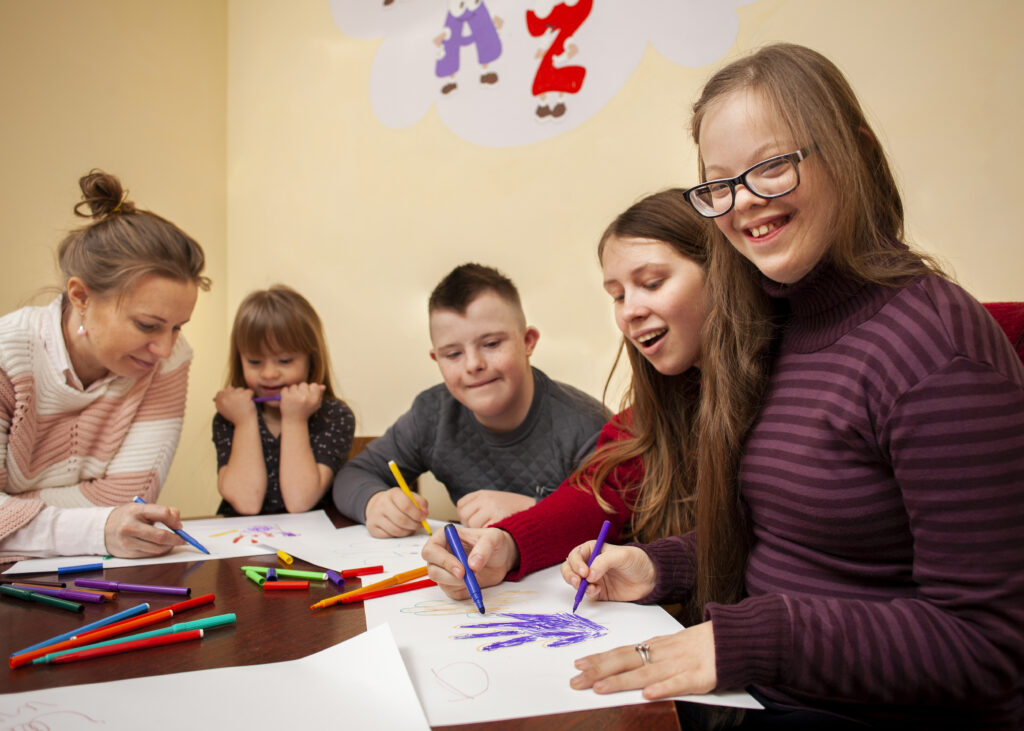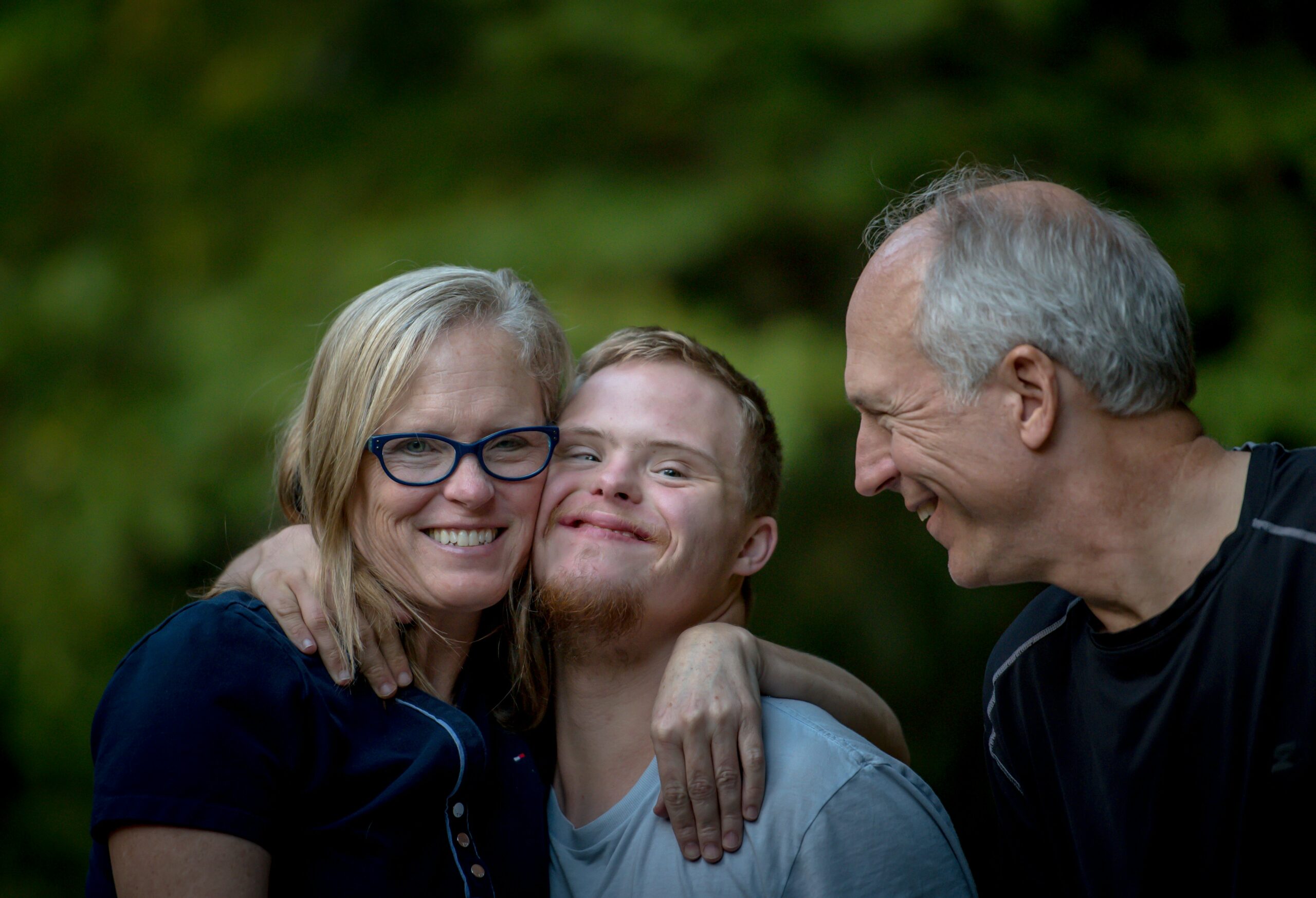Unlocking Communication: The Role of Speech Therapy in Down Syndrome

When a child is diagnosed with Down syndrome, families often find themselves navigating a sea of questions—especially about how their child will grow, learn, and connect with the world. Parents may wonder about their child’s health, physical development, and learning abilities. Will they be able to attend school like other children? How will their motor skills develop? What kind of medical care or early intervention will they need? Amid these important questions, one of the most common and emotionally significant concerns revolves around communication: Will my child be able to express their thoughts? Will they understand what others are saying? How can we support their ability to connect with the people around them? These are not just questions—they reflect the deep hopes families have for their child’s future, and ability to thrive.
In this blog, we’ll explore how early and consistent speech therapy can unlock communication for children with Down syndrome, empowering them to express themselves confidently and connect deeply with the world around them.
What is Down Syndrome?
Down syndrome is a genetic condition caused by the presence of an extra copy of chromosome 21. It can impact a child’s physical growth, cognitive development, and often, their speech and language skills. While each child with Down syndrome is unique, many experience delays in developing expressive language, understanding spoken words, and using speech clearly and effectively. These communication challenges can affect their interactions at home, in school, and with peers.
Why Do Children with Down Syndrome Need Speech Therapy?
Language and communication difficulties are frequently encountered in children with Down syndrome. This happens for a variety of reasons:
● Low Muscle Tone: Children with Down syndrome often have weaker muscles in their face, mouth, and tongue. These muscles are crucial for the production of sounds and the pronunciation of words. Because of low muscle tone, children might have trouble forming sounds correctly.
● Hearing Problems:Some children with Down syndrome experience hearing issues, such as frequent ear infections, which can affect their ability to hear sounds and words clearly. If they can’t hear properly, it makes it harder for them to learn how to speak.
● Cognitive Delays:Youngsters with Down syndrome could pick up new abilities more slowly than their peers. This can make learning to speak and understand language more challenging.
● Speech Clarity:Even if children with Down syndrome can understand what others are saying, they may have trouble speaking clearly enough for others to understand them.
This is where in-person or online speech therapy plays a vital role. It helps in strengthening the muscles, practicing sounds, and improving their ability to communicate verbally. But more than just helping a child “talk,” speech therapy focuses on communication—listening, understanding, speaking, using gestures or visuals when needed, and providing them the tools they need to express themselves more effectively.
How Does Speech Therapy Work for Children with Down Syndrome?
Speech therapy sessions are typically designed to fit the unique needs of each child. A speech-language pathologist (SLP), also known as a speech therapist, works closely with the child and their family to create a plan that targets specific goals. Here’s what speech therapy might involve:
● Building Early Communication Skills: Even before a child learns to speak, they can start working on communication. For example, therapists may use sign language or picture cards to help young children express their needs. This helps them communicate while they are still learning to speak.
● Practicing Sounds and Words: Once children are ready to start speaking, therapists will help them practice making sounds and saying words. They use fun activities like games, songs, and toys to make the practice enjoyable and engaging for the child.
● Strengthening the Muscles: To help with speech clarity, speech therapists often focus on exercises that strengthen the muscles in the mouth, tongue, and jaw. These exercises make it easier for children to form sounds and words correctly.
● Improving Listening and Understanding: Speech therapists also help children with Down syndrome improve their ability to listen and understand language. They use strategies like repeating words, showing pictures, and using simple sentences to help children understand what’s being said.
● Social Skills: Speech therapy isn’t just about speaking; it’s also about learning how to interact with others. Therapists will help children practice taking turns in conversations, and understanding social cues like facial expressions and gestures.
The Role of Parents in Speech Therapy
As a parent, you play a vital role in your child’s speech therapy journey. The following are some ways you can help your child:
● Practice at Home: The speech therapist may give you activities and exercises to practice with your child at home. These might include reading books together, playing word games, or practicing sounds in front of a mirror. The more practice your child gets, the faster they will progress.
● Encourage Communication: Encourage your child to communicate as much as possible, even if they aren’t speaking clearly yet. You can do this by asking them questions, giving them choices, and praising their efforts to talk.
● Use Visual Supports:Using pictures, gestures, or sign language can help your child communicate while they are still working on their speech. Visual supports give your child a way to express themselves, even when words are hard.
● Stay Patient and Positive: Learning to speak can be frustrating for children with Down syndrome, especially when they know what they want to say but can’t express it clearly. Be patient and offer lots of encouragement. Celebrate their small successes, and remind them that they are making progress.
How long will the child need speech therapy?
The length of time a child with Down syndrome will need speech therapy varies. Some children may need therapy for several years, while others may need less time. The important thing is to focus on your child’s individual progress and celebrate each improvement, no matter how small. Some children may continue to work with a speech therapist throughout their school years to help with social communication and academic language.
Conclusion
Speech therapy is an important part of helping kids with Down syndrome communicate as well as they can. Speech therapy is tailored to each child’s unique needs, making it possible to build critical skills through enjoyable activities and interactive exercises.Parents are key partners in this journey, providing essential practice and encouragement at home. By integrating strategies such as visual supports, games, and positive reinforcement, parents can reinforce the gains made in therapy and support their child’s growth in communication. Speech therapy is a pathway to greater independence, self-expression, and social interaction,for children with Down syndrome With early intervention and consistent support, these children can make meaningful progress. For families of children with Down syndrome, speech therapy is a powerful tool that fosters not only language skills but also emotional connections and a brighter future.



0 Comments on "Unlocking Communication: The Role of Speech Therapy in Down Syndrome"